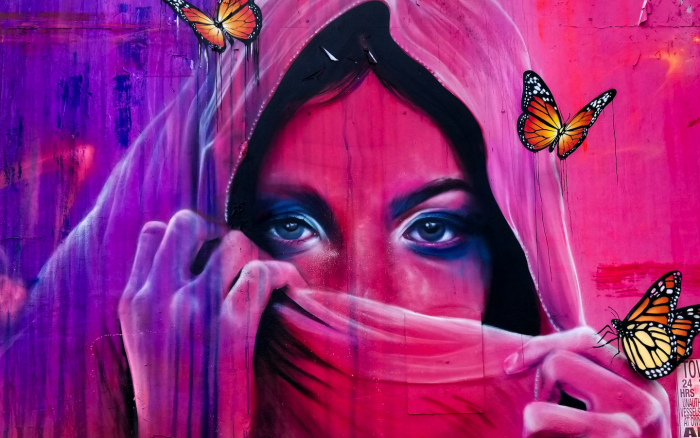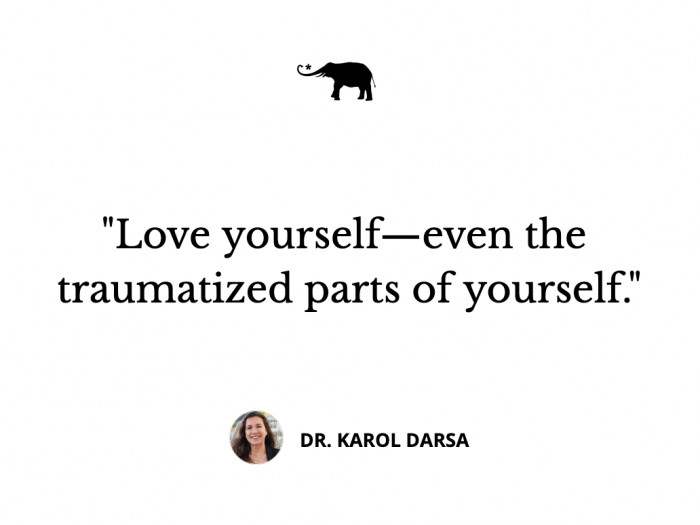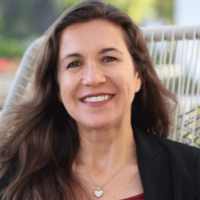I have been working as a trauma psychologist for 23 years.
I’ve helped hundreds of trauma survivors work through their painful, traumatic pasts and find peace in the present moment.
As I learned more and more about trauma and its treatment, I became fascinated with a topic that most people don’t usually associate with trauma: loving yourself.
I witnessed clients who experienced physical abuse, sexual trauma, medical illness, or relational trauma—for years. No matter the trauma they experienced, they all showed one common symptom: lack of self-love and a sense of deep shame for who they are and how they feel.
Clients came through my doors asking me to help them to “forget what happened” as if it was possible to delete the past trauma and its emotional injuries.
I noticed that if they were abused, they believed they were dirty or gross or unlovable. If they were abandoned or neglected, they believed they were not worthy of love. They often wondered if, at their core, they were “bad people”—if something was wrong with them.
I spent countless hours telling them it is not their fault and felt passionate about helping them with their self-judgments. It broke my heart each time I heard their horrible, degrading words about themselves and wanted to rescue them from their pain inflicted by their past traumas.
I wondered why they couldn’t see themselves with loving eyes the way I saw them. Why couldn’t they stop blaming themselves for the abuse? And, most importantly, how could I help them?
Over the years, it became clear that this lack of self-love was related to how they internalized their abusers. In other words, people treated themselves the way they were once treated.
If they were abused as children, they found ways to abuse themselves through drugs and alcohol. If they were yelled at and criticized harshly by their parents, they had a lot of negative self-talk.
If they were abandoned, they didn’t value themselves as adults. Their abusive parents might have been long gone, but they followed the legacy. They disconnected from who they were.
In addition, they rarely made peace with the impact of the trauma. They didn’t want to see their emotional “injuries” and who they became after trauma. Many of them wanted to blame themselves, so they didn’t have to feel the pain of being a victim of abuse.
Others even “forgot” what happened because it was too painful to face it. All of this is okay. This is what we call a “defense mechanism”—a necessary strategy to deal with the unbearable pain of the past.
It became crucial as I continued to work with these trauma survivors that I give the following messages—over and over again:
1. Trauma is not your fault.
2. If you have symptoms such as depression, anxiety, addiction, or unexplainable anger, it might mean you’ve experienced trauma.
3. Chances are you are minimizing what happened and the impact of it.
4. You might think someone else’s trauma is bigger than yours. You might believe you should simply “get over it.” This is not true or helpful.
5. You don’t have to talk about what happened over and over again in order to overcome it.
6. You can heal the past mostly by staying present with yourself and with your body.
7. Please don’t hurt yourself anymore. You deserve to be treated better by yourself and by others.
9. Don’t be afraid of your emotions, but go slow in befriending them.
10. Surround yourself with nonjudgmental people.
If you, too, are a trauma survivor, I hope you get inspired and become compassionate with yourself.
Judging and hating yourself is a waste of time and energy.
Stay in your loving.


 Share on bsky
Share on bsky






Read 0 comments and reply